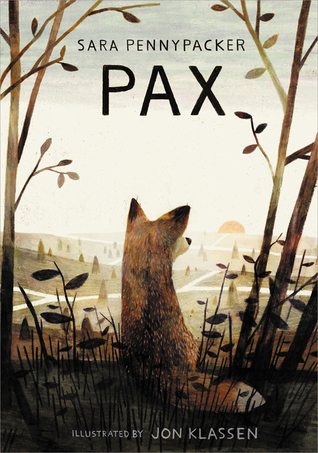We had
quite animated discussions at our May meeting. We talked about the picture book,
Found by Salina Yoon first. We all loved the illustrations and the
simplicity of the story of a little tricycle-riding bear who finds a toy stuffed
bunny in the forest, tries to find its owner, but then becomes very attached to
the bunny, and ultimately has to return it to its original owner, a 'grown-up'
necktie-wearing moose. We felt that it would be a good read-aloud, and might be
helpful for kids who had to get rid of unused or outgrown toys. A couple of
people loved the book, but a few others felt that it fell short in a few
respects. They thought that the transition when the 'older' moose decided to
give the bunny back to the little bear was a bit too 'convenient,' and that it
would have worked better if there had been a couple of 'beats' between the moose
reclaiming his bunny and then almost immediately returning it back to the little
bear. But we basically liked it, and everyone loved the endpapers,
which showed a colorful collage of various 'LOST' signs (and one 'FOUND' sign!),
some of which would have garnered a good giggle from any adult reading this book
to a little one.
We had
several differing opinions on the novel, Pax by Sara Pennypacker, the
story of 11-year-old Peter, who lived with his widower father, and had rescued a
young orphaned fox from the forest, raised it as a pet, and then had to release
it back to the wild when his father went to war and Peter was sent to live with
his grandfather. The story is told in alternating chapters in the voices of
Peter and the fox, as they are each determined to do whatever it takes to find
the other, and as each has various harrowing adventures and adverse situations
to overcome in the process. Many readers were upset and even a bit annoyed that
there was no specific time or place for this story. Which war? Where? When?
Others felt that didn't really matter since the major themes were related to
letting go of something loved and then trying to find it again, and also to the
idea of what really constitutes a family as well as the anti-war message
provided in many of the passages that dealt with what war does to people (and
animals.) Some
readers felt that the author tried to undertake too much in the development of
too many plot points, and others felt that both Peter and the fox
seemed to exhibit just too much thought and insight given their ages and
statuses (11 & a fox!) in life. Many felt that the character of Vola, an
embittered female war veteran whose cabin Peter finds in the middle of a forest
and ultimately befriends, was somewhat gratuitous, and really unnecessary; others
thought she filled an important role in sort of substituting as a mother figure
for Peter when he needed that. We all agreed that the black and white
illustrations by Jon Klassen added absolutely nothing to the story, and we also
all agreed that this book provided some beautifully written passages, and a lot
of 'stuff' for us to think about, but none of us felt that it would become 'a
beloved classic', as many of the reviews had stated. ....and so it
goes.

